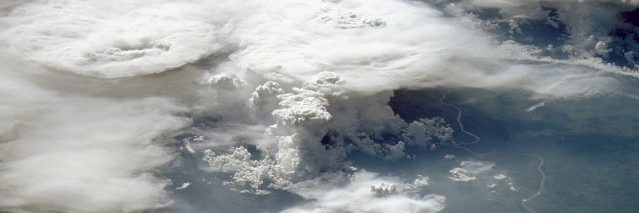Cloud seeding has been used all over the world for more than 60 years. Source: NASA Goddard Space Flight, Flickr.
Parts of China’s Yangtze River have been ravaged by drought but the government has resorted to cloud seeding to bring about much needed rain.
This form of weather modification has been used by China for several decades and it’s hoped that relief can come to millions of people who rely on the Yangtze for water.
Cloud seeding can happen through various techniques including electrical charge, infrared laser pulses and chemicals.
China has the largest cloud seeding system in the world and carries out the weather modification by shooting silver iodide rockets into areas of the sky that need rain clouds to form.
While it primarily produces rain, cloud seeding can also bring snowfall and did so in Beijing in 2009.
According to the Ministry of Water Resources the drought is “adversely affecting drinking water security of rural people, livestock, and the growth of crops”.
China is currently experiencing their worst heat wave in over 60 years with temperatures soaring over 40 degrees in cities across the country.

The two-month long heatwave has seen an increase in energy needs, depleting hydropower reservoirs as people have been using their air conditioners and other cooling appliances non-stop.
Blackouts and a decrease in factory operations has also been happening as energy companies struggle to keep up with the demand.
Although the government has begun cloud seeding, drought riddled areas have yet to see any relief as there has been a lack of cloud cover for the seeding to be carried out.
One area that’s been adversely affected by the heatwave and subsequent drought is the Hubei province, which holds over four million people.
Their Provincial Emergency Management Department said that over 150,000 people don’t have easy access to drinking water while over 400,000 hectares of crops have been lost.
China’s Ministry of Finance has issued disaster relief with about $64 million to go towards providing aid for those most affected while the Three Gorges Dam will increase its water outage to 500 million cubic metres in the coming days.





